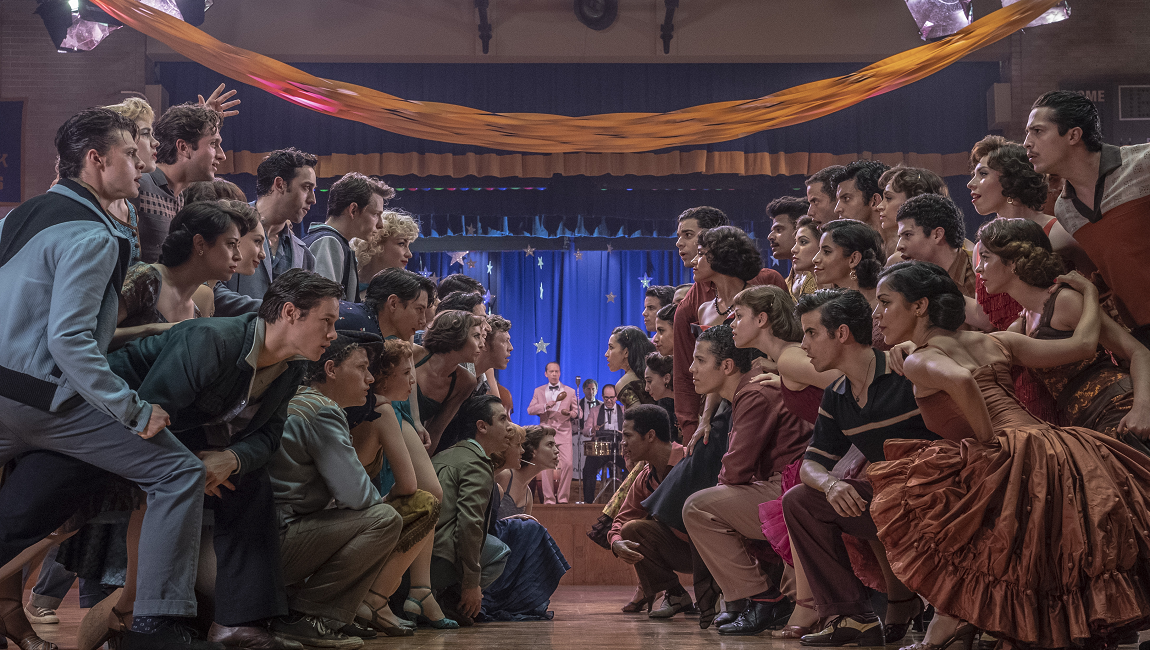Adapted from a 2001 article published in Texas Monthly and very loosely inspired by the life of law enforcement personnel Gary Johnson, Richard Linklater’s Hit Man is ostensibly a whale of a tale about a mild-mannered audio technician who lived a double-life as a pretend assassin; first as a professional pursuit, and eventually because it just seems kind of fun. In actuality, the film is about how insanely charming the actor Glen Powell (Top Gun: Maverick) is and how disarming it is to allow oneself to be charmed by him. Powell, who co-wrote the film’s screenplay with Linklater (the filmmaker gave the actor his first big break, casting him in 2016’s Everybody Wants Some!!), has crafted a character who’s every actor’s dream: an endless procession of personas and disguises that by design allows him to become all things to all people. Gary, and all of his incarnations and off-shoots, is knowledgeable about topics large and small, projects menace and charisma in equal measure, is inviting without being ingratiating and, most impressively, is completely unflappable in the face of unexpected complications. The film grants the viewer the vicarious thrill of being in total control of every situation, although it also helps if you also look like Glen Powell.
In what is easily the least believable thing in a film filled with absolute whoppers, we’re introduced to Gary as he’s being quietly mocked for being a loser by the college students he teaches in a philosophy class at University of New Orleans (Linklater, Powell, and Johnson are Texas, through and through, but with production incentives being what they are, the Crescent City makes for a worthy venue for sleepy small-town allure and intrigue). Wearing wire-rimmed glasses and with his hair “unflatteringly” parted to the side — like Clark Kent or the “ugly duckling” tomboy in a teen comedy, the film is asking us to accept a couple of cosmetic imperfections as a smokescreen that conceals the perfect physical specimen behind them — Gary is coded as a dork because he speaks in a nasal “white guy” voice, is an avid birdwatcher, and, in a bit of gilding the lily, wears jorts to his side gig as a police surveillance technician. You see, Gary moonlights as the proverbial “guy in the van” for the New Orleans police department, but he’s thrust into a starring role when dirtbag undercover officer extraordinaire Jasper (Powell’s Everybody Wants Some!! teammate, Austin Amelio) is suspended for violating a raft of civil liberties, requiring the unassuming audio engineer to take his place at a sting operation at the last minute. That means sitting down across from someone with designs on hiring a contract killer and earning their confidence just long enough to confess on tape so the police can rush in and arrest them.
“Starring role” is the right avenue to approach both the character and Hit Man at large, as the film is interested in the art of acting as much as anything else. Gary’s impromptu performance, which mostly involves lowering his voice a register and adopting a dead-eyed stare (ditching the jorts helps), seems to come from absolutely nowhere as though someone flicked a personality switch inside of him. Only a few moments earlier he’d been nervously prattling on, but asked to play a hardened killer on the spot, and Gary transforms into a taciturn brute who coldly describes the act of dismembering and disposing of a body with the sort of dispassionate authority that’d make a believer out of anyone. His skill in internalizing a series of new characters without missing a beat is treated like a magic trick, but it’s really a sly acknowledgement of how great actors can assume and shed roles the way other people change clothing (the film is even a gentle rebuke of method performers, channeling Laurence Olivier’s famous diss of Dustin Hoffman’s fussy over-preparation, “Why not try acting, dear boy?”)
As the film makes clear, a gun for hire is basically an urban legend perpetuated by decades of pop culture, and Gary isn’t so much drawing from a wealth of research as a general understanding of human psychology and years of film and television that have not only shaped his understanding of how a professional killer behaves, but also that of his would-be clients’. Sometimes that requires presenting himself as a nut-tappin’ good ol’ boy or a Eurotrash creep, but his most inspired creation is Ron, a barely constrained pile of sexual magnetism in tight jeans and an open shirt who sits down opposite the gorgeous Madison (Adria Arjona), an abused spouse who wants somebody to off her no-good husband. How “Ron” reacts to Madison’s desperation spins the film off in a fantastical direction — the extent to which Hit Man draws from Johnson’s real life pretty much ceases with this scene — which finds Gary in a hot-and-heavy romance with a suspect; channeling a swaggering badass and misleading both his employers and a beautiful but potentially dangerous woman in a scenario that owes as much to the screwball farce as it does dog-eared paperback crime novels. As the noose tightens around Gary and the risk of being exposed by both Madison and the NOPD requires increasingly extreme measures to maintain his cover(s), Hit Man leaves reality in the dust, bestowing upon the character an almost superhuman ability to think on his feet and wriggle out of jams. But realism-schmealism, sometimes all you need out of a film is to observe two insanely attractive people fall in love on screen.
Powell is something of an anomaly these days. An American-born movie star under the age of forty, the actor has a face that might as well be chiseled from marble and is outwardly at ease being objectified (the ad campaign for last winter’s thoroughly mediocre yet shockingly popular Anyone But You was built almost entirely around the promise of Powell and co-star Sydney Sweeney wearing next to nothing for 100 minutes) and gives off strong jock energy — the actor will be back on screens in a couple months playing, presumably, a yee-hawing storm chaser in Twisters — yet like all Linklater protagonists, he’s also a brainy chatterbox. The film’s digressions into the nature of the collective good or the battle for dominance between the id and superego may come across more as set-dressing than a governing ethos, but they flatter the actor’s gift for gab and bullshit philosophizing. For all of its high-concept trappings, the film is fundamentally about “Ron” and Madison getting to know one another during sweaty southern nights in an arrangement that establishes “no serious attachments” as a ground rule. There’s plenty of falling in and out of bed and hot and heaviness (Madison isn’t above a little role-playing herself), but some of the most charged scenes in Hit Man involve the couple sharing an ice cream sundae, nursing beers or strolling through the less touristy spots of New Orleans draped over one another and simply allowing someone else into their lives. Stretches of the film would feel right at home in the Jesse and Céline trilogy that are then almost rudely intruded upon by niggling inconveniences like that husband of Madison’s who “Ron” was supposed to rub out and the unscrupulous Jasper being a lot more perceptive than he lets on.
In truth, Gary’s charm and cleverness may be enviable qualities in a lover or friend, but they’re also dramatic liabilities. The fun in these sorts of situations is in things going pear-shaped and seeing people’s resourcefulness challenged, and if there’s such a thing as being too “in control,” it’s Gary. The film is almost amiable to a fault, so much so that its attempts to quicken the pulse or introduce actual danger into the mix largely play as flatlines. The character is almost too “awesome” to actually be vulnerable — even when he finally does lose his shit at the walls crashing down on him, he’s still a model of grace under fire — and watching the character escape incriminating circumstances without even breaking a sweat can start to feel a bit like coasting. Even the film’s highpoint requires Powell’s self-assurance and anticipating all the angles to be briefly transferred onto another character who matches him step for step, with the sequence playing out like two scene partners volleying back and forth rather than life-or-death stakes. It’s intoxicating “make believe,” but there are limitations to that approach. There’s a comfort in how confidently Hit Man steps, but it’s akin to an amusement park ride with no highs or lows. It’s hard not to be tickled by the film while still wondering: “Is that all there is?”
DIRECTOR: Richard Linklater; CAST: Glen Powell, Adria Arjona, Austin Amelio, Retta, Sanjay Rao; DISTRIBUTOR: Netflix; IN THEATERS: May 24; STREAMING: June 7; RUNTIME: 1 hr. 55 min.







